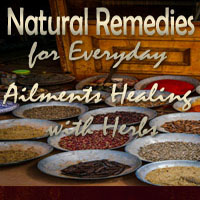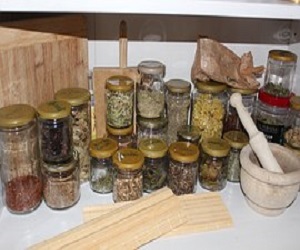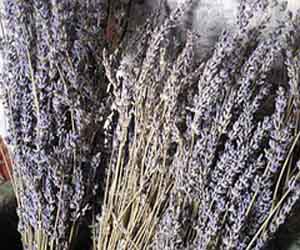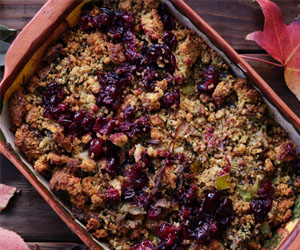


Nature's Soothing Elixir

In our modern, fast-paced lives, stress has become an almost inevitable companion. The demands of work, family, and daily life can take a toll on our physical, emotional, and mental well-being. To combat this ever-present stress, many individuals are turning to natural and holistic solutions, with essential oils emerging as a powerful tool for relaxation and stress reduction.
The Essence Of Essential Oils
Essential oils are highly concentrated extracts derived from various plants, each carrying its unique fragrance and therapeutic properties. These natural compounds have been used for centuries in traditional medicine, and their potential to alleviate stress and promote relaxation is now gaining recognition in the modern world.
The Science Of Aromatherapy
Aromatherapy, the practice of using essential oils for therapeutic purposes, capitalizes on the connection between our sense of smell and the brain's limbic system, which governs our emotions. The aromatic compounds in essential oils can influence our mood, emotions, and even our physical well-being.
Stress Reduction: A Holistic Approach
Stress affects us on multiple levels, and a holistic approach to its reduction is essential. Essential oils can address the interconnected aspects of stress, providing relief on both emotional and physical levels.
Emotional Stress Relief
One of the most well-known benefits of essential oils is their ability to alleviate emotional stress. Oils like lavender, chamomile, and rose can have a calming and soothing effect on the mind. Inhaling these fragrances or using them in massages can help reduce anxiety, lower stress levels, and promote a sense of well-being.
Physical Stress Relief
Stress often manifests physically, leading to muscle tension, headaches, and other discomforts. Essential oils like eucalyptus, peppermint, and ginger are valuable allies in relieving physical stress. They can be applied topically, diluted in carrier oils, or added to bath water to ease muscle tension and reduce headaches.
Stress Reduction Rituals
Incorporating essential oils into your daily routines can create a calming and stress-reducing environment. Diffusers are an excellent way to disperse the aroma throughout your space, but you can also use oils in baths, massages, or even by simply inhaling the scent from a tissue or handkerchief. Establishing rituals like these can be an effective way to manage stress.
A Natural And Holistic Solution
Essential oils offer a natural and holistic solution for stress reduction. Unlike pharmaceuticals, they come with minimal side effects and can be a gentle yet effective approach to finding tranquility in the midst of life's demands.
In today's world, stress is a constant companion, but it doesn't have to dictate the quality of our lives. Essential oils, with their ability to soothe the mind and body, offer a natural and holistic means to reduce stress and find moments of relaxation and calm. By incorporating these aromatic elixirs into your daily routine, you can take a step toward a more peaceful and balanced life.
Nature's Healing Bounty
 A Global Heritage Of Medicinal Plants
A Global Heritage Of Medicinal Plants
The use of medicinal plants is deeply ingrained in human history. Different cultures have harnessed the healing power of local flora, passing down knowledge from generation to generation. Indigenous peoples have traditionally relied on medicinal plants to address a wide spectrum of health issues, from digestive problems to wounds and infections. These traditions persist and continue to be valuable resources for herbal medicine.
Traditional Knowledge Meets Modern Science
The use of medicinal plants is not confined to historical practices; it's a dynamic field that intersects with modern science. In recent decades, there has been a resurgence of interest in traditional herbal medicine, prompting extensive scientific research into the efficacy of medicinal plants. This scientific validation has led to the development of herbal supplements and pharmaceutical drugs derived from natural plant compounds.
Common Medicinal Plants And Their Uses
Aloe Vera: Aloe vera is renowned for its soothing properties and is often used to treat burns, sunburn, and skin irritations.








A Path To Emotional Well-Being
 Understanding Self-Compassion
Understanding Self-Compassion
Self-compassion is a concept developed by psychologist Dr. Kristin Neff and is built upon three core components:
Self-Kindness: Self-compassion involves being warm and understanding toward oneself in moments of difficulty or pain. Instead of harsh self-criticism, individuals practice self-kindness, offering words of comfort and reassurance.
Common Humanity: Recognizing that suffering is a universal human experience is another essential aspect of self-compassion. People often feel isolated in their pain, believing they are alone in their struggles. Self-compassion reminds us that we are not alone; others experience similar challenges.
Mindfulness: Self-compassion encourages individuals to approach their pain and suffering with mindfulness, without judgment. This means being present with one's emotions and experiences, acknowledging them without negative self-talk.
The Benefits Of Self-Compassion
Improved Mental Health: Research has consistently shown that self-compassion is associated with lower levels of depression, anxiety, and stress. By practicing self-compassion, individuals are better equipped to manage difficult emotions and maintain their mental well-being.
Enhanced Resilience: Self-compassion helps people bounce back from setbacks and adversity. It encourages a more positive and growth-oriented mindset, making it easier to learn from challenges and move forward.
Navigating The Path To Positive Changes
 3. Exploring Gluten-Free Alternatives: Fortunately, the market offers a wide variety of gluten-free alternatives to traditional gluten-containing products. From gluten-free bread and pasta to baking mixes, you can enjoy many of your favorite foods without sacrificing taste or quality.
3. Exploring Gluten-Free Alternatives: Fortunately, the market offers a wide variety of gluten-free alternatives to traditional gluten-containing products. From gluten-free bread and pasta to baking mixes, you can enjoy many of your favorite foods without sacrificing taste or quality.
4. Meal Planning: Meal planning becomes an integral part of a gluten-free lifestyle. Planning your meals and snacks in advance ensures that you have gluten-free options readily available and reduces the risk of accidental gluten exposure when dining out or on the go.
5. Cooking And Baking Skills: For many, transitioning to a gluten-free lifestyle involves developing new cooking and baking skills. Gluten-free flours, thickeners, and other ingredients may behave differently than their gluten-containing counterparts. Embrace the opportunity to explore new recipes and cooking techniques.
6. Dining Out And Travel: Dining out and traveling can pose unique challenges for those on a gluten-free diet. It's essential to communicate your dietary needs clearly to restaurant staff and do some research in advance to identify gluten-free options at your destination.
7. Nourishing Your Body: A gluten-free lifestyle can provide an opportunity to rethink your dietary choices. Focus on nourishing your body with whole, unprocessed foods like fruits, vegetables, lean proteins, and gluten-free grains like quinoa and rice. This can lead to better overall health and well-being.
8. Seeking Support: Transitioning to a gluten-free lifestyle can sometimes feel overwhelming. Seek support from online communities, local support groups, or a registered dietitian who specializes in gluten-related issues.
Nourish Your Body And Soul
 Benefits Of Wellness Recipes
Benefits Of Wellness Recipes
Nutrient-Dense: Wellness recipes are packed with essential vitamins, minerals, and antioxidants. They offer a range of nutrients that support the body's functions and strengthen the immune system.
Balanced Nutrition: These recipes aim to provide a well-balanced combination of macronutrients (carbohydrates, proteins, and fats) to ensure sustained energy and satiety.
Weight Management: Wellness recipes often focus on portion control and lower-calorie options, making them a valuable tool for those aiming to manage their weight.
Heart Health: Many wellness recipes are designed to support cardiovascular health by emphasizing heart-healthy ingredients such as whole grains, lean proteins, and unsaturated fats.
Digestive Health: Fiber-rich ingredients, such as fruits, vegetables, and whole grains, are frequently incorporated into wellness recipes to promote digestive health.
Mental Well-Being: Proper nutrition is known to have a positive impact on mental health. Wellness recipes can contribute to mood stability and overall cognitive function.
Creating Wellness Recipes
Creating wellness recipes is an enjoyable and creative process. Here are some guidelines to keep in mind when developing your wellness-focused dishes:
Start With Whole Foods: Base your recipes on whole, unprocessed ingredients like fruits, vegetables, whole grains, lean proteins, and healthy fats.
Portion Control: Pay attention to portion sizes to avoid overeating. Consider using smaller plates to help control portions.
A Harmonious Journey To Well-Being
 Physical Health
Physical Health
The mind and body are interconnected, and the state of your mind has a direct impact on your physical health. Chronic stress and emotional turmoil can lead to physical ailments, ranging from headaches to more serious conditions. By achieving inner peace, you can reduce the physical toll that stress and negativity take on your body. This results in improved overall health and well-being.
Spiritual Connection
Inner peace also plays a significant role in nurturing your spiritual connection. It can deepen your sense of purpose and connection to something greater than yourself. This spirituality provides a wellspring of inner strength and resilience when facing life's challenges.
Practices For Inner Peace
Several practices can help you on your journey to inner peace and holistic health:
Meditation: Regular meditation practice is a powerful tool to quiet the mind and find inner peace.
Mindfulness: Living in the present moment without judgment is a key aspect of finding inner peace.